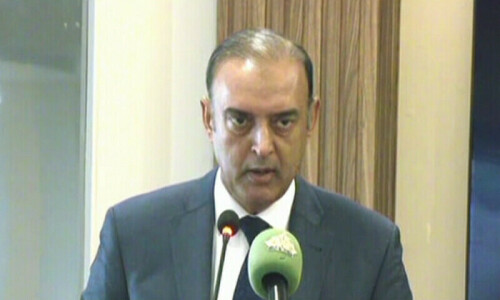ISLAMABAD: Ahead of the next World Trade Organisation (WTO) ministerial meeting, India has begun aggressive lobbying to get legal shelter for subsidy on rice exports to the world market, a move likely to affect Pakistan’s rice exports.
The issue of seeking more protection for Indian rice exports came up during the G-33 countries recent consultations in Geneva as part of the proposals on agriculture reforms for Bali meeting to be held in December.
“Pakistan is in the middle ground with China and Indonesia, which are in favour of enlarging the green box subsidies — non-prohibited subsidies — but no exemption to trade distorting support”, a trade official told Dawn.
India is seeking huge flexibility to distort rice production and trade in the name of food security, but trade experts says it will take away food security of rest of the small countries whose farmers depend on the production and export of rice.
As a result of trade distorting subsidies in India, Pakistan has already lost its market share in rice exports to India in the last couple of years owing to subsidised Indian exports to the world market.
Pakistan lost its position because of the aggressive exports from the stocks maintained by Food Corporation of India, a state-owned organisation.
Pakistan exported rice worth $1.756 billion in July-May period in 2012-13 as against $1.908bn over the corresponding period last year, reflecting a decline of over seven percent.
The impact of the trade distorting subsidy was not limited to Pakistan’s exports of rice because Thailand and Vietnam were also no more the first two exporters of the world as this position was taken over by India. India has already taken number one position in exports by releasing stocks which are highly subsidised.
“Indian stocks are much higher than what they need. The result is that government warehouses were over utilised and finally the stocks are exported at subsidised prices,” the source further said.
Contrary to this, government of Pakistan came out of the business of rice export two decades ago and the rice exports have become a steady source of foreign exchange for the country and the whole business was carried out the private sector.
Experts says it was a need of the time, that Islamabad should uphold WTO disciplines to protect Pakistan rice exports worth 2bn dollars and invest in research, pest eradication, storage, improvement in yield and develop varieties which consume less water.
G-33 proposal is demanding exemption from domestic support (aggregate measurement of support) on this assumption that it is minimally trade distorting and it is linked with the food security of the country. The objective of stock holding programs is to ensure food security of your own population.
India has recently passed an ordinance on food security which is nothing short of a government takeover of the two major commodities (wheat and rice).
India is already a big exporter of these commodities; they have had bumper crops and are seeking additional flexibility from the WTO to subsidise these commodities in the name of food security.
Production of these two commodities is highly subsidised in India, further policy space would mean that it will have adverse impact on the food security of other smaller developing countries, which may not be very big exporters but will lose their market share due to subsidised Indian exports to the world market.
Such an exemption is possible for a product which has shortage in the country and food security needs of the population are heavily dependent on that product.
In case of rice, India is the largest exporter of rice therefore any exemption of rice will always be trade distorting.
It will have huge impact on the food security of other countries whose farmers earn money through exports or by selling to domestic market.
“If WTO provides any flexibility to India for distorting market it will be a huge mistake and will have very negative impact on food security of the world,” the experts suggested, adding: “We should go for sustainable production. They must fix their policy and follow market mechanism. WTO is about markets, it cannot support government takeover of the whole production, distribution, warehousing, exports etc.”
An official of the commerce ministry said Pakistan is a member of G-33 and supports food security for all. “We encourage countries to invest in research and rely on investment and agrarian reforms rather than trade distorting subsidies for food security,” the official commented.
These are green box subsidies and ensure level playing field for every one, the official added.
“We will lose our competitiveness if additional flexibilities are given for distorting trade and production of rice. Such an undermining of the WTO rules would have a severe impact on the livelihood of poor farmers in Pakistan,” the official added.















































